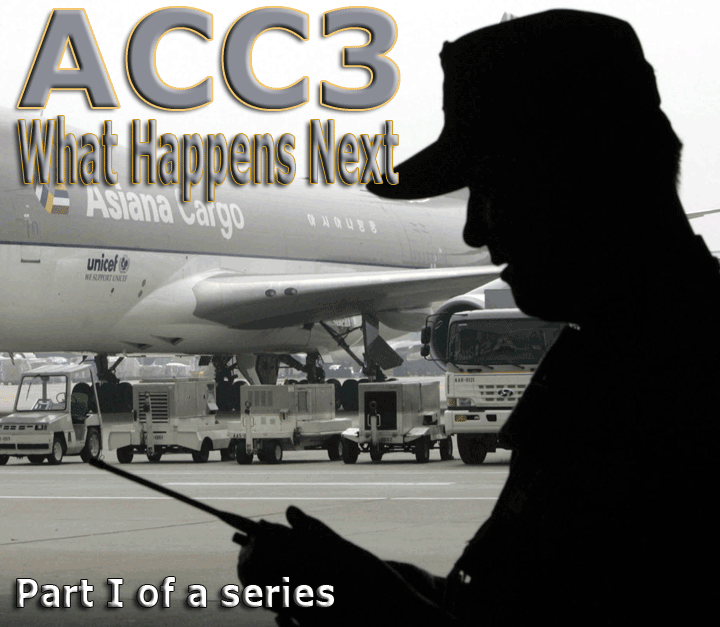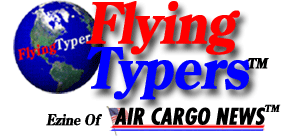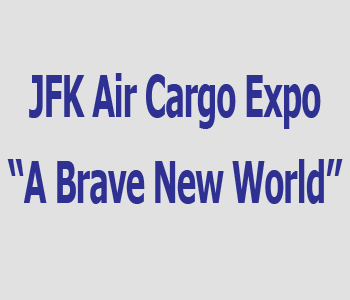| 
 With
the deadline for compliance with new European security requirements looming,
FlyingTypers has teamed up with FIATA’s David Fielder, Chairman
of the FIATA’s Advisory Body on Security Matters, to help explain
to forwarders exactly what they need to understand before ACC3 enters
into force on July 1. With
the deadline for compliance with new European security requirements looming,
FlyingTypers has teamed up with FIATA’s David Fielder, Chairman
of the FIATA’s Advisory Body on Security Matters, to help explain
to forwarders exactly what they need to understand before ACC3 enters
into force on July 1.
Are you concerned that forwarders are not doing enough to
meet ACC3 in time for the July 1 deadline?
To
answer that question you need to understand the bigger picture, especially
as the ACC3 requirements are focused more on carriers than forwarders.
Please
explain more, David . . .
While
forwarders may be asked to support a carrier in its audit, it is not mandatory.
RA3s, a cargo-handling entity located in a third country that is validated
and approved as such on the basis of an EU aviation security validation,
and KC3s, a validated known consignor located in a third country, do not
have an obligation to meet EU Regulations. However, it would be attractive
to become an RA3 or KC3 and meet the criteria of the checklist in Regulation
(EU) 654/2013, one of the main regulations that brought the new security
regime into being.
Why
is meeting the criteria beneficial?
After
validation through an EU Aviation Security Validator, the cargo from a
regulated agent or known consignor can find its way onto any air carrier
which is also validated. If a regulated agent or known consignor carrying
cargo from a third country into the EU is certified as an RA3 or KC3,
the security supply chain will remain unbroken. So there are potential
cost savings and reputation benefits for all business partners. It must
also be borne in mind that, in many countries, there are established Known
Shipper programs in accordance with Annex 17 and those forwarders shipping
from "green" countries should not have major concerns or issues.
How
is validation achieved?
The
regulations outline clearly the procedure for validation. In short, either
the ACC3’s security program shall set out details of security controls
implemented on its behalf by third country entities from which it accepts
cargo directly for carriage into the Union; or the third country entities
submit the relevant cargo handling activities to an EU aviation security
validation at intervals not exceeding five years and provide ACC3(s) with
a copy of the validation report. What is still not apparently clear is
whether current Known Consignors in countries with Annex 17 programs will
receive automatic recognition given issues of sovereign control.
Do
forwarders need to know anything more about the regulations?
Specifically
the regulations governing RA3 audits as applied to forwarders were promulgated
in the middle of 2013 as per the below COMMISSION IMPLEMENTING REGULATION
(EU) No 654/2013 of 10 July 2013 amending Regulation (EU) No 185/2010
in respect of EU aviation security validation checklists for third country
entities. EU Regulation 654/2013 clearly outlines a forwarders’
position and includes the checklist. It states at the beginning: Third
country entities have the option to become part of an ACC3 (Air cargo
or mail carrier operating into the Union from a third country airport)
secure supply chain by seeking designation as a third country EU aviation
security validated Regulated Agent (RA3). An RA3 is a cargo handling entity
located in a third country that is validated and approved as such on the
basis of an EU aviation security validation.
From
where does the legal basis of ACC3 for carriers originate?
ACC3 in respect of carriers is defined within
EU Regulation 1082/2012, which amended EU185/2010 to extend the security
requirements to carriers flying into the EU as EU185 only covered requirements
within the EU only. The time frame is mentioned below in respect of carriers
(b) until 30 June 2014, a “Declaration of commitments — ACC3”
as set out in attachment 6-H confirming the implementation of the security
program covering the points as specified in Attachment 6-G. The declaration
shall be signed on behalf of the air carrier by its legal representative
or by the person responsible for security. Either a copy or the original
shall be retained by the appropriate authority until the expiry date of
the ACC3 designation;
(c) from 1 July 2014, an EU aviation security validation report confirming
the implementation of security measures.
This means ACC3s must present to the relevant
EU authority until 30th June 2014 an audit report, including a validation
checklist, proving the ACC3's security supply chain meets the EU regulation.
The validation must be undertaken by an accredited EU Aviation Security
Validator and certified by an EU authority. The validator must sign his
independence declaration (1082/2012 - Attachment 11-A) in respect of the
entity validated. Facilitations are also possible for ACC3s when they
work with entities such as RA3s or KC3s.
Is
there anything else forwarders need be concerned about?
While
there may be various local operational issues creating difficulties for
forwarders in becoming RA3 validated such that they can continue to provide
cargo without need for subsequent inspection by their carrier, this will
be part of greater discussions.
There is also the issue of state controls
and application of extra-territorial controls and where a particular country’s
government position is on this. And then there is the issue that if cargo
is currently fully inspected and controlled at airports under current
country procedures, the need for RA3 may not be relevant depending on
what is agreed by that State with the EU.
But, by far the greater issue is what happens
to the carriers who fail to get audited in time—so those flying
from non-exempt countries. This is more of a concern, as it would reduce
the pool of available carriers for forwarders to use. Likewise, the limited
number of ACC3 auditors is another concern.
FIATA does not believe that the deadline
on July 1, 2014 is of greater concern for forwarders than other stakeholders,
for example carriers, who are directly affected by this date.
I would like to say, in any case, that FIATA
and its Association Members are available to all freight forwarders for
advice and assistance in all countries of the world. All companies that
need special assistance in this predicament may come to FIATA or their
Association Members for assistance. Let me also say that, in view of the
particular interpretations of this legislation in different jurisdictions,
there is never 100 percent certainty; one special case might come up and
require special attention or explanation. If this is the case those companies
or associations are more than welcome to take contact with FIATA to clarify
what could be considered moot points.
I wish to thank FlyingTypers for
their interest and assistance in this rather technical topic that greatly
benefits from the dissemination of correct information.
Thank
you too, David!
SkyKing
|



